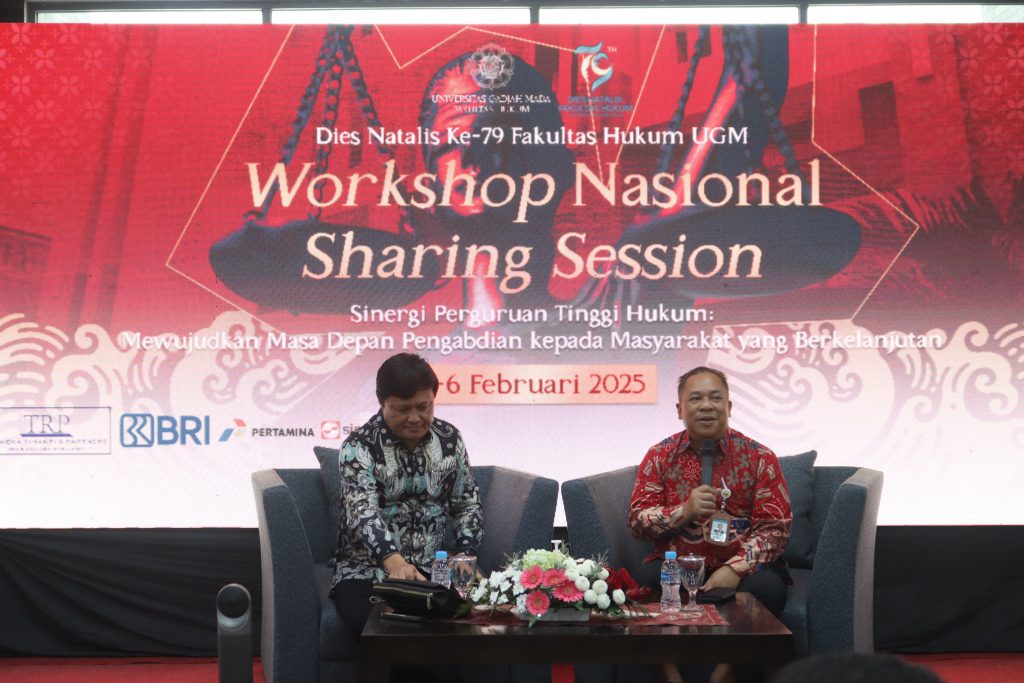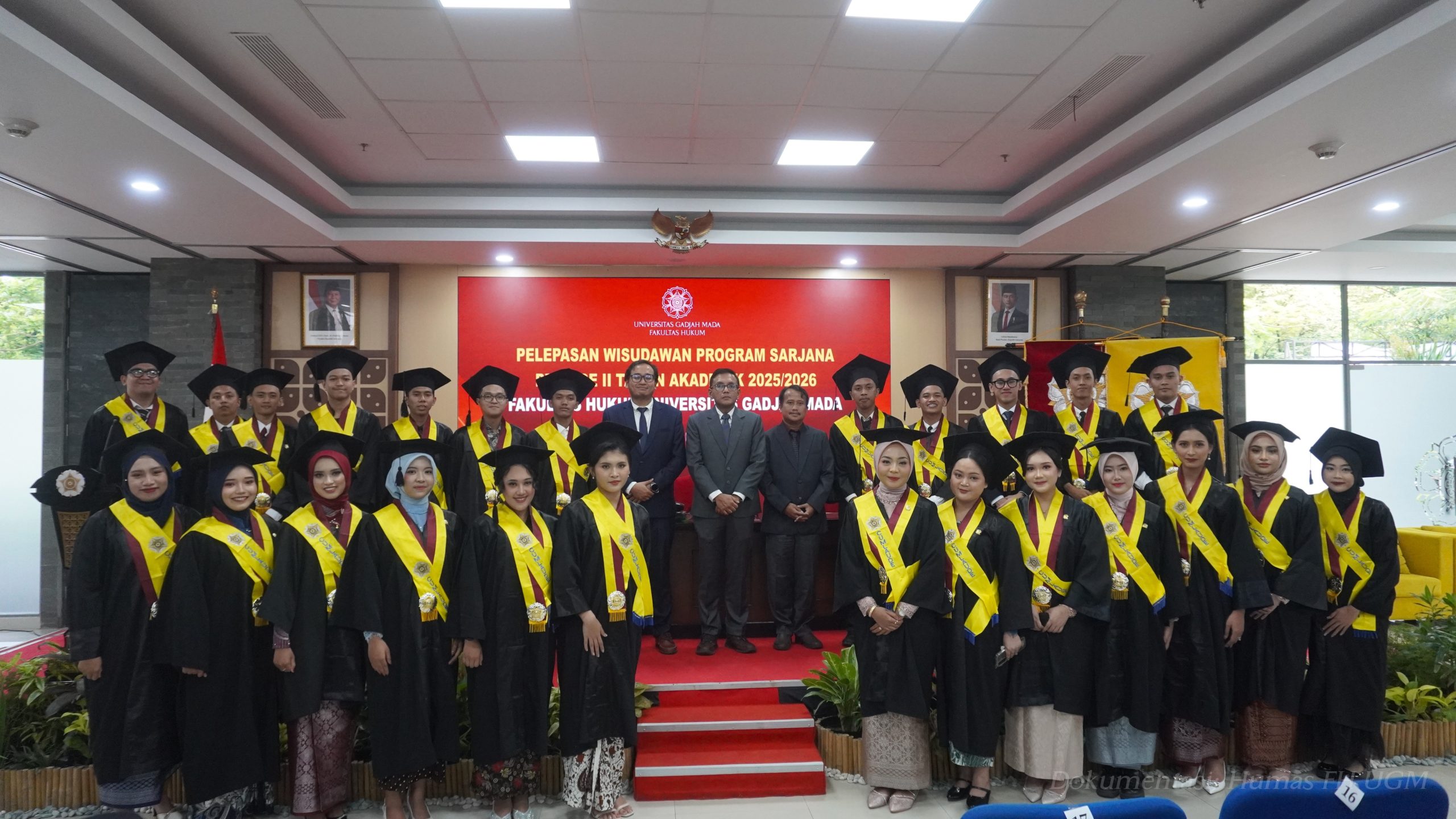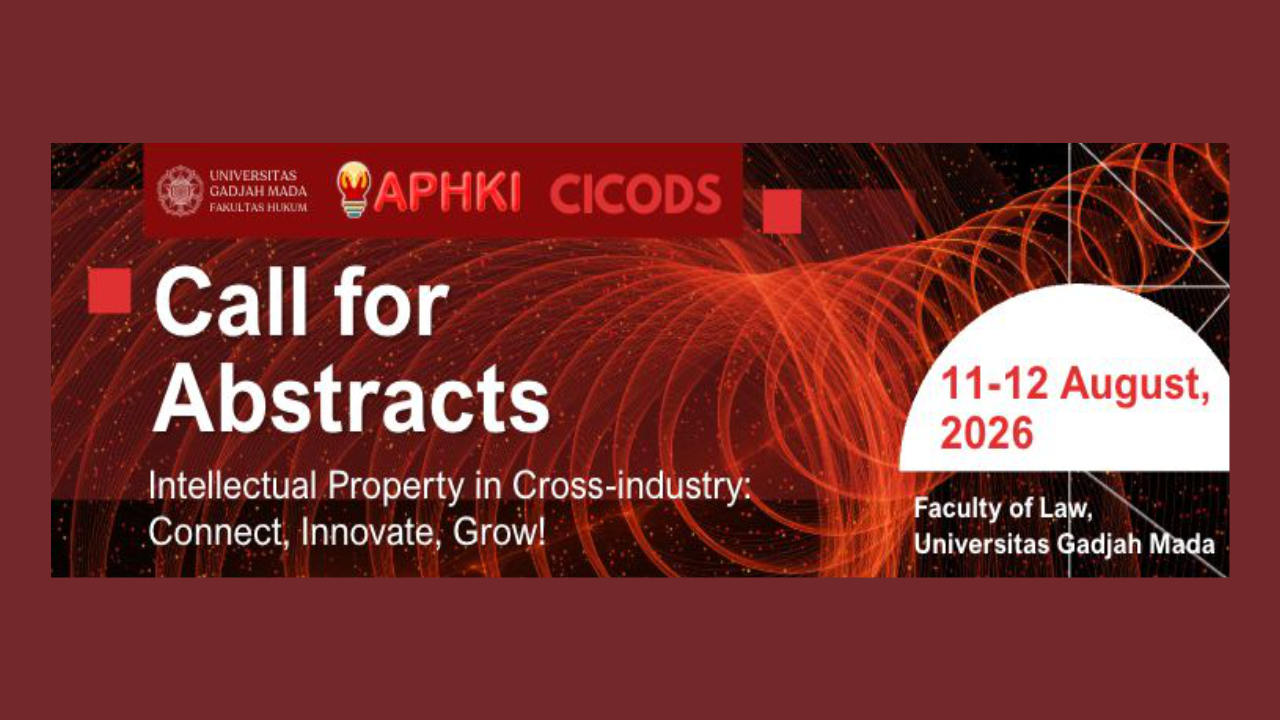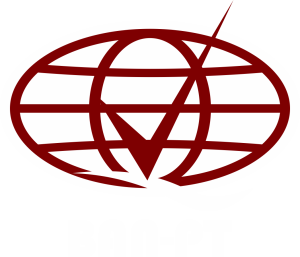Faculty of Law, Universitas Gadjah Mada (UGM), through the Legal Aid Consultation Center (PKBH), successfully organized an event titled "National Workshop and Sharing Session on the Synergy of Law Schools: Realizing a Sustainable Future for Community Service." The event, held at the Auditorium of Building B, Faculty of Law UGM, was part of the 79th Anniversary of the Faculty of Law UGM. The event was attended by 28 universities from various regions in Indonesia, with a total of more than 70 participants.
This National Workshop and Sharing Session is one of the Faculty of Law UGM's initiatives to unify collaborative synergy among law schools in Indonesia in implementing one of the Three Pillars of Higher Education (Tri Dharma Perguruan Tinggi), namely sustainable community service. Additionally, it aims to realize several Sustainable Development Goals (SDGs): Goal 4 - Quality Education, by supporting higher education strengthening, knowledge dissemination, and enhancing academic capacity and legal skills; Goal 16 - Peace, Justice, and Strong Institutions, by focusing on the development and strengthening of legal systems as well as improving access to justice and dispute resolution in a fair and transparent manner; and Goal 17 - Partnerships for the Goals, by strengthening partnerships between law schools and various stakeholders to achieve sustainable development objectives.
The National Workshop and Sharing Session began with a Welcoming Dinner on Wednesday (5/2/2025) at the Auditorium of Building B, Faculty of Law UGM. The Welcoming Dinner was opened with remarks by the Chair of the 79th Anniversary Committee of the Faculty of Law UGM, Ms. Dina Widyaputri Kariodimedjo, S.H., LL.M., Ph.D., followed by remarks from the Vice Dean for Research, Community Service, and Information Systems of the Faculty of Law UGM, Dr. Heribertus Jaka Triyana, S.H., LL.M., M.A. The event continued with networking sessions and introductions among participants from various regions and law schools in Indonesia.
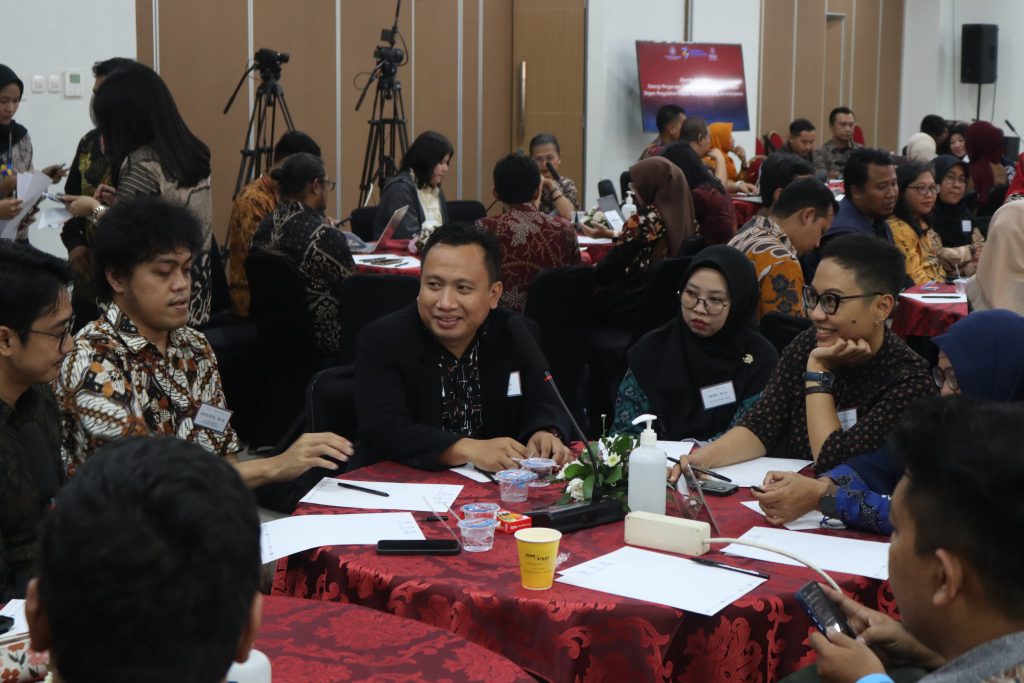
Thursday (6/2/2025), the main event commenced, consisting of two key activities: the National Workshop with two speakers and a Sharing Session with participants.
The event opened with remarks from the Vice Dean for Finance, Assets, and Human Resources of the Faculty of Law UGM, Prof. Dr. Mailinda Eka Yuniza, S.H., LL.M., followed by official opening remarks by the Vice Rector for Student Affairs, Community Service, and Alumni UGM, Dr. Arie Sujito, S.Sos., M.Si.
Dr. Arie Sujito emphasized that universities have an obligation to engage in community service alongside education and research. He hoped that research and coursework, supported by practical activities, could benefit society, ensuring that education outcomes are not solely industry-focused but also address social issues with relevant knowledge and skills. He asserted that universities cannot remain neutral, as they are driven by humanitarian and justice values, with law playing a crucial role in resolving societal issues.
Before the keynote presentations, the event committee chair and Head of the Legal Aid Consultation Center (PKBH) of the Faculty of Law UGM, Dr. Dra. Dani Krisnawati, S.H., M.Hum., provided an overview of the event’s objectives, highlighting five critical issues in community service within law schools:
- Strategic direction of community service policies in law schools;
- Commercialization of services versus pro bono work;
- Institutional structures for legal community service within universities;
- Challenges and impact measurement of community service initiatives; and
- Innovations implemented or planned (best practices).
The main session, the National Workshop, began with a presentation from the first speaker, Dr. Djarot Heru Santosa, M.Hum., Secretary of the Directorate of Community Service (DPKM) UGM. He explained that community service at UGM is implemented through programs such as the Student Community Service (KKN), which has been a compulsory course since 1971. The KKN program aims to enhance community self-sufficiency through quality improvement strategies, including interdisciplinary collaboration, program downstreaming, partnerships, and research-based outcomes, emphasizing coordination, collaboration, and publication as key success factors.
The second presentation was delivered online by Dr. M. Fauzan Adziman, S.T., M.Eng., Director-General of Research and Development at the Ministry of Science and Technology of the Republic of Indonesia. Dr. M. Fauzan Adziman outlined five strategic challenges facing Indonesia: limited demographic bonus, climate change impacts, global economic slowdown, emerging pandemic threats, and artificial intelligence disruption. He urged universities to collaborate with industries and communities in supporting national development programs, highlighting the importance of challenge-driven research and multidisciplinary interaction focusing on topics such as artificial intelligence, renewable energy, food technology, and socio-economic issues. He hoped that university research and innovation would provide direct benefits to society.
Following the National Workshop presentations, the event continued with the Sharing Session among participants. Participants were divided into five groups, each consisting of 13 to 15 members, to discuss the five critical issues in legal community service. The discussion results were compiled into a plenary session summary:
- Strategic direction of community service policies in law schools: Synergy among law schools, local governments, and external partners requires a clear roadmap, differentiation between research and community service, and transparent funding management, with a focus on interdisciplinary collaboration and regulatory strengthening to enhance service effectiveness.
- Commercialization of services versus pro bono work: There are challenges in balancing pro bono legal services with commercialization in university-based legal aid, particularly concerning funding, regulations, and accreditation systems. A flexible policy framework is needed to integrate community service with professional collaboration.
- Institutional structures for legal community service within universities: University-based legal aid faces structural challenges, including organizational differences, accreditation constraints, varying funding sources, and administrative hurdles. Some universities adopt more flexible management models, but institutional integration between faculties and universities needs improvement to enhance service effectiveness.
- Challenges and impact measurement of community service initiatives: Challenges identified include low student interest, language barriers, limited human resources, and funding constraints. Proposed solutions include alumni engagement, strengthening internal regulations, and developing standard operating procedures for human resources and financial management to improve service effectiveness and sustainability.
- Innovations implemented or planned (best practices): Community service initiatives encompass three main aspects: (1) legal outreach through legal consultation and paralegal training, (2) service integration through course curriculum and inter-faculty collaboration, and (3) service grants to support program sustainability. Challenges include the need to equate community service with education and research while fostering synergy among universities and institutional support.
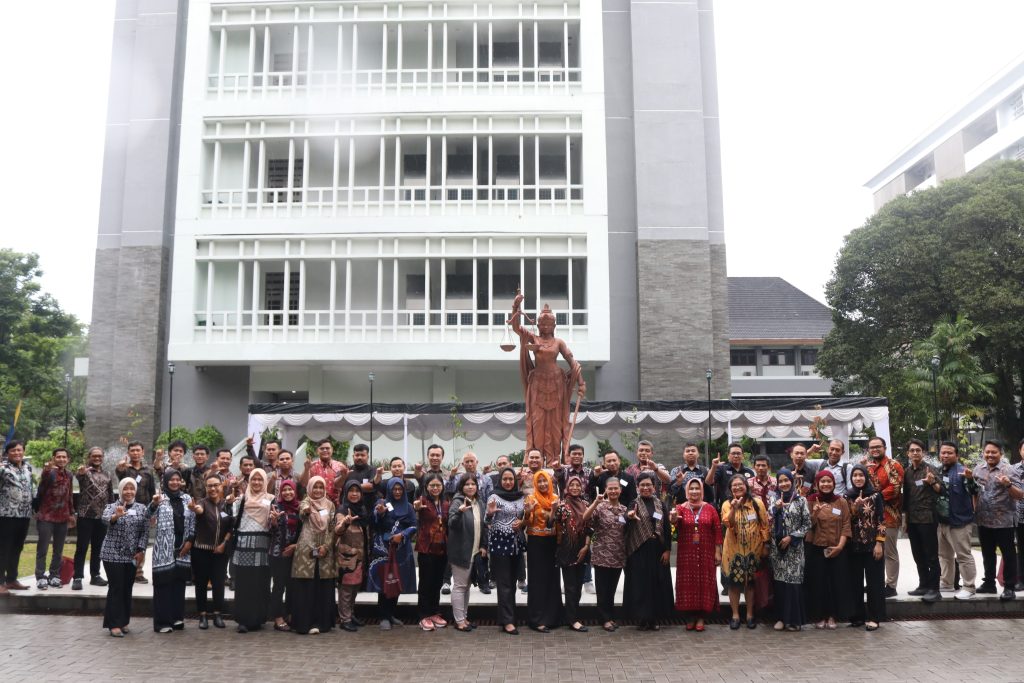
Hasil dari kegiatan Workshop Nasional dan Sharing Session The outcomes of this National Workshop and Sharing Session will be discussed at a higher level within the Association of Deans of Public Law Schools in Indonesia (BKS Dekan FH PTN se-Indonesia), currently chaired by the Dean of the Faculty of Law UGM, Dr. Dahliana Hasan, S.H., M.Tax., Ph.D. These discussions aim to develop concrete implementations that foster sustainable community service. This event also strengthens collaboration and builds connections among various public law schools and their community service units to continuously provide the best legal aid and services to society at large.
Author: Adetia Surya Maulana (PKBH)


